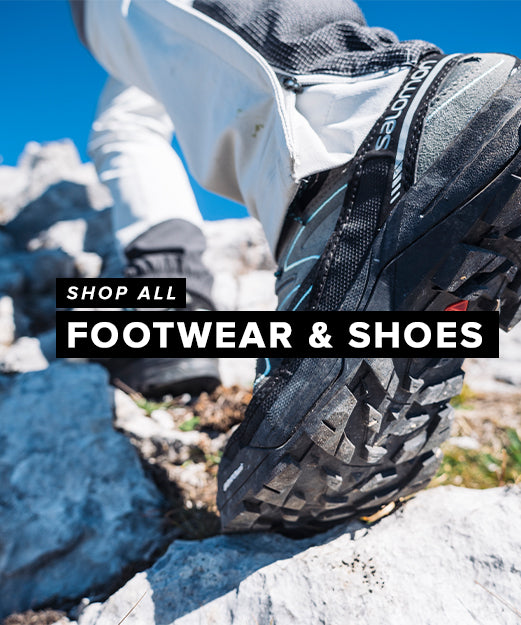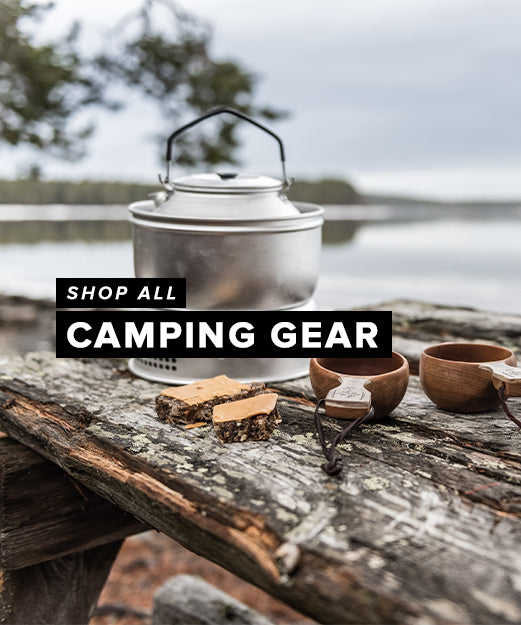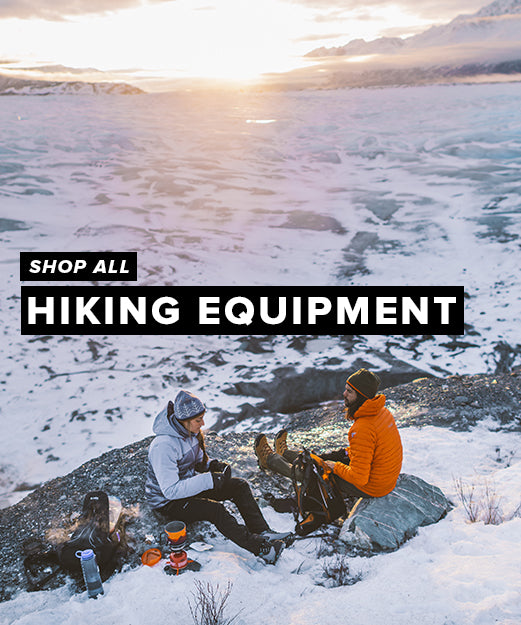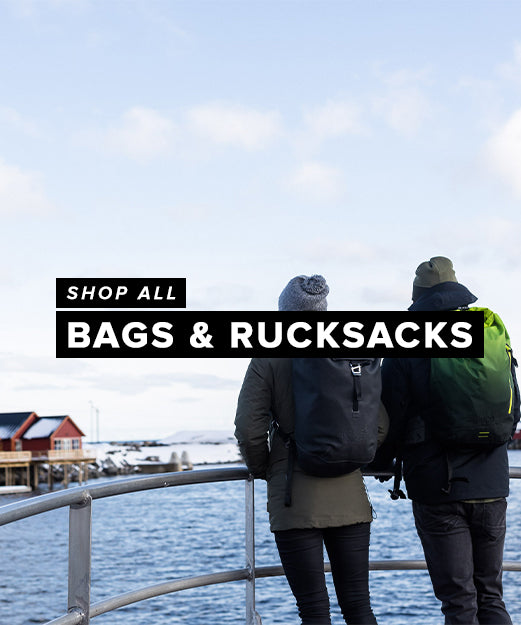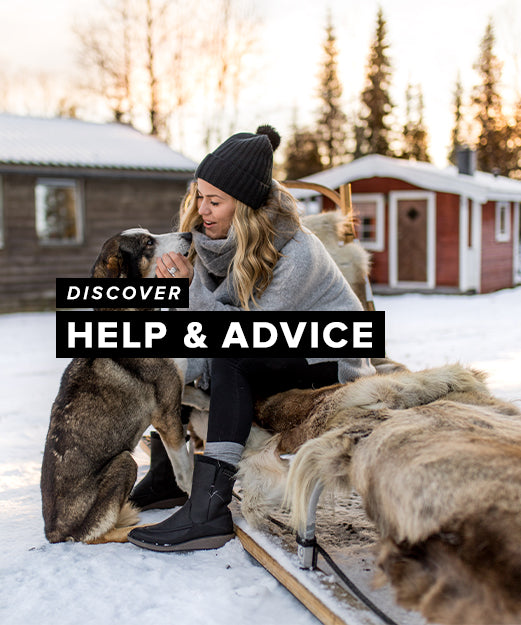The ability to sleep comfortably in the mountains is one that I very much respect. It is not as easy as it may seem! The mountains at night are a surprisingly hostile place to try and sleep, especially when that means carrying all that you require to wherever it is that you wish to lay your head.

Why sleep in the mountains?
For me there are three main reasons to sleep in the mountains;
- For the experience itself. By sleeping high in the mountains you get to experience sunset and sunrise in some beautiful locations, far above the rest of the world and with a view that is free from too many obstructions. You also get to experience dark skies, a rare phenomenon in our towns and cities. I love lying back and watching the milky way and picking out some of the more obvious constellations - how many of our ancestors have stared at the same stars?
- As part of a journey. By carrying our equipment with us we are able to undertake longer routes that just would not have been possible otherwise. Backpacking in the Scottish Highlands opens up a wealth of possible venues to explore that just are not an option for the day walker. In some parts of the world camping is the only option if you want to explore bigger mountains - in Nepal I often sleep better in a tent than a tea house.
- As part of a climb. On bigger climbs we often need to sleep in the mountains. This might be at the base or top of our climb or even whilst on the route itself, this type of camping often involves little in the way of sleep though!
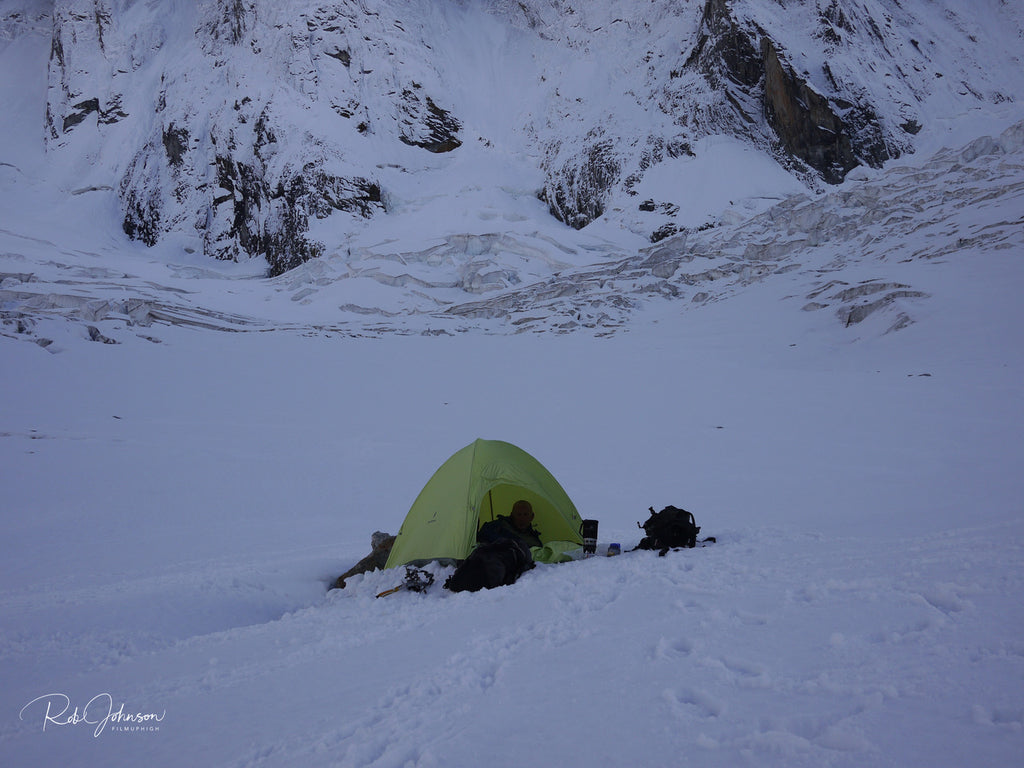
Top Tips
There is a constant compromise whilst wild camping between weight and comfort - don’t let anyone tell you any different! Essentially the more comfortable you wish to be the more you will have to carry and the less comfortable you will be whilst you are carrying it.
Equally the more money you spend the less your kit (and wallet) will weigh and the more comfortable you will be.
Top Tip Number One: Buy a decent tent and sleeping bag
You will want a tent that will stand up to the rigours of mountain wild camping and so you will need something that is sold as at least a 3 season tent but probably a 4 season. If you are good at suffering then you could consider a bivvy bag but unless you are very good at sleeping on the floor with little protection from the elements it is unlikely you will get a full 8 hours.
Your sleeping bag will determine how warm you are and therefore have a high impact on how much you enjoy the experience. Personally I use a down bag as it allows more warmth for weight - this does means that I have to be super organised about keeping it dry though.
Top Tip Number Two: Keep your kit dry
There is nothing worse than getting into a wet sleeping bag and it often rains in the UK mountains. Pack all of your kit in dry bags, with your sleeping bag in at least two. When you erect your tent keep your sleeping bag in its dry bag until you need it. Keep the inner tent free of all water ie if you have wet clothes take them off in the porch and don’t take them into the inner tent. Keep your dry clothes dry if you are on a multi day trip, i.e. put wet clothes back on the next morning if it's still wet outside.
Top Tip Number Three: Take a backup lighter
Most stoves are now sold with their own ignition system. This often fails so take a backup lighter. I take lightweight fire steel but anything will do as long as you can keep it dry.
Top Tip Number Four: Don’t burn down your tent
The biggest danger with wild camping is in the use of stoves. Cook away from your tent to avoid burning it down and to avoid giving yourself Carbon Monoxide poisoning. Many famous alpinists have suffered with the latter and we have come close to losing some superstars.
Top Tip Number Five - Leave as you find
The beauty of wild camping is the wilderness. Make sure that you leave the environment as you found it - this will mean taking all waste, human or otherwise, with you when you leave.
By Rob Johnson
A full time Mountaineering Instructor & International Mountain Leader living in the mountains of North Wales. Rob is also full team member of Llanberis Mountain Rescue Team.
 NEW!! Free UK Delivery
NEW!! Free UK Delivery Hassle-Free Returns
Hassle-Free Returns Clearpay
Clearpay



